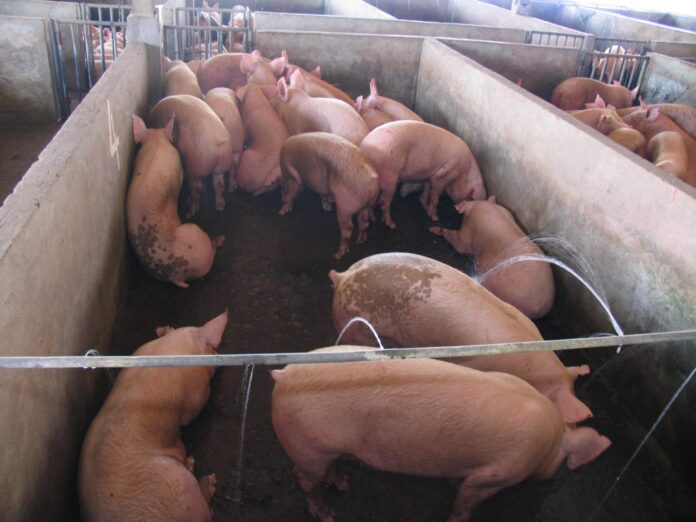-
The Philippine Chamber of Commerce and Industry is proposing calibrated importation of pork to address the supply shortage and stabilize prices
-
The Department of Agriculture earlier proposed increasing the minimum access volume of meat import allocation from 54,000 metric tons to 162,000 metric tons
-
PCCI said the government should continue to strengthen local production through more accessible financing and technology and infrastructure support, including additional cold storage facilities for the agriculture sector
The Philippine Chamber of Commerce and Industry (PCCI) is proposing the “calibrated importation” of pork as an immediate remedy to the shortage of supply and stabilize prices across the food value chain.
PCCI proposes implementing the calibrated importation until such time the spread of the African swine fever (ASF) is curbed and “local hog raisers can safely return to their industry.”
“The risk of contamination and spread of the virus is really high because there is no available vaccine yet for ASF. A calibrated importation program is an option government can consider to secure supply and bring down the price of pork,” PCCI president Benedicto Yujuico said in a statement.
The PCCI statement comes after President Rodrigo Duterte approved additional pork imports to boost supply and tamp down high prices, Cabinet Secretary Carlo Nograles said in an online briefing on Thursday. An Economic Intelligence task force has also been created to clamp down on profiteers, price manipulators, hoarders and smugglers. The task force is co-chaired by the Department of Agriculture (DA) and Department of Trade and Industry.
Yujuico said the move to import pork is attuned to the DA’s food security program especially now when supply is short and prices are soaring.
Local pork output has been reduced due to the ASF outbreak, significantly affecting the supply and prices of pork in the market, particularly in Metro Manila and greater Luzon.
The DA earlier proposed increasing the minimum access volume of meat import allocation from 54,000 metric tons to 162,000 metric tons.
PCCI also said the DA and the government’s economic team should continue to strengthen local production through more accessible financing and technology and infrastructure support, including additional cold storage facilities for the agriculture sector.
PCCI director for agriculture Roberto Amores said allocating funds to subsidize the logistical cost of supplying pork and chicken to Metro Manila should help indemnify hog farmers and help them as they cope with the shortage brought about by the ASF.
The Philippine government recently placed a 60-day price cap on pork and chicken products in Metro Manila to contain rising prices. DA has put the blame for the high prices on traders and wholesalers who allegedly unreasonably jacked up the prices of kasim/pigue and liempo. The prices of these products had ranged from P360 to P400 per kilogram (kg) in December through January 2021, while farmgate prices of hogs had remained at P130 to P210/kg.
READ: 60-day price ceiling for pork, chicken set in NCR
The Inter-Agency Task Force for the Management of Emerging Infectious Diseases also designated the country’s nautical highway and the Maharlika Highway in Luzon as special hog lanes to guarantee the unhampered transport of hog shipments from Visayas and Mindanao.
DA said it is now coordinating with the logistics sector and other concerned agencies, particularly the Department of Interior and Local Government, on the implementation of the special hog lanes.
About 95% of the pork supply in the Philippines is locally sourced, and while the ASF virus, whose first outbreak in the country was recorded in 2019, does not pose any health risks to humans, there is no known vaccine to prevent it from spreading to the local livestock and destroying the industry. Nearly 500,000 hogs in the country have so far been culled due to the disease.





